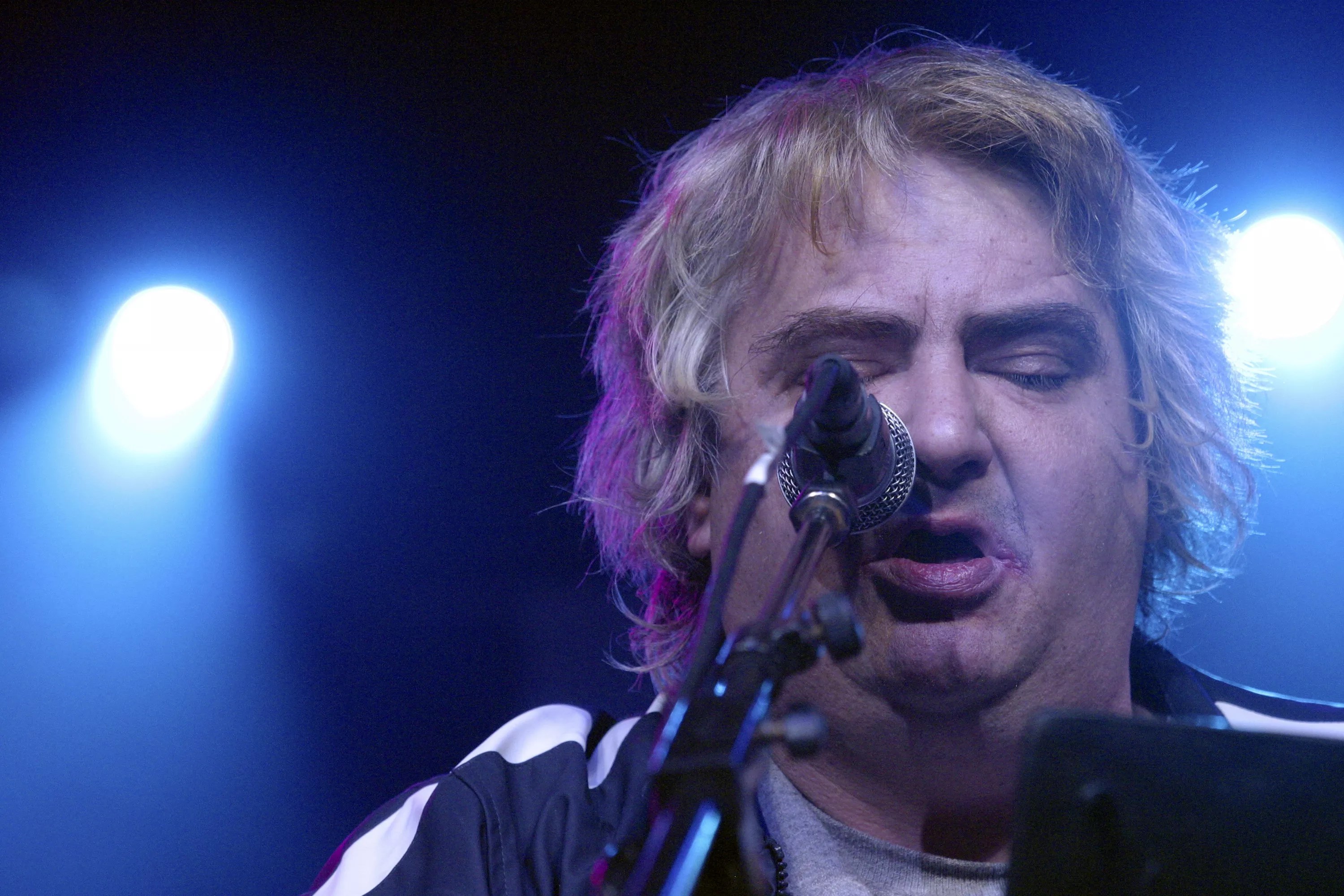
Jana Birchum/Getty

Audio By Carbonatix
I’ve always hated the notion of the “tortured genius” since it essentially glamorizes an artist’s devastating struggle. Isn’t music supposed to, as Woody Guthrie once put it, “comfort the disturbed and disturb the comfortable?”
I’ll admit, it has become harder for me to intellectually defend my disdain for this archetype when discussing Austin musician Daniel Johnston, and that’s because knowing his struggles and understanding their gravity are prerequisites to appreciating his music and his legacy.
Johnston died of a heart attack Tuesday. Most tributes discuss how Johnston had a fan in Kurt Cobain, and many have been quick to point out that his quaint, albeit rudimentary doodle of a frog became a symbol of the city of Austin. Johnston’s track record also speaks for itself when you take into account artists who have covered him, such as Pearl Jam, Beck, Tom Waits, Lana Del Rey, Flaming Lips, Wilco, Beach House, Cage the Elephant and countless others.
These are certainly tidbits worth mentioning, and they do reflect a life and career of astonishing achievement, but they don’t exactly suffice in paying Johnston the tribute he deserves. Sure, they demonstrate how those of prominence have expressed appreciation of him, but they don’t exactly explain why.
When art meets commerce, barriers get erected. You have to purchase expensive gear and equipment. You have to pay hundreds to thousands of dollars just to get professional renderings of your songs, and you have to possess at least some musical proficiency. These walls are so lofty that they have scared far too many aspiring artists from pursuing their craft.
But not Johnston. Johnston circumvented these barriers, and even during a horrific struggle with schizophrenia and manic depression he made it to the other side with flying colors. All it took for him to get there was a tape recorder, a piano, a chord organ and a See ‘n Say toy.
The world didn’t understand Johnston, but some incredibly respected and formidable artists did. The reason behind this is simple: Johnston was an artist in the truest sense in that nothing was able to separate him from his creativity.
To say his music wasn’t the flavor-du-jour would be a drastic understatement. The instrumentals on albums such as Yip/Jump Music sounded like those of a Fisher Price accordion; his vocals were nasally and frequently off-pitch, and to top it all off, he recorded his music at home. He made each cassette tape individually and handed out copies to friends and strangers. He would even put copies in customers’ bags while working at McDonald’s.
The music industry was hostile to artists of Johnston’s kind, and it kept Johnston in the trenches for years, but that didn’t stop him from putting out 13 albums between 1981 and 1991. He penned profound and wise songs such as “Don’t Let the Sun Go Down on Your Grievances,” as well as biographical and cathartic ones like “The Story of an Artist.” He expressed self-deprecation on “I’ll Never Marry,” but also optimism on “True Love Will Find You In the End.” He expounded on drug use with “I Did Acid With Caroline,” but also performed gospel hymns like “Careless Soul” and “Be With Me Lord.”
Johnston was a versatile and determined artist, and while underground figures like Jad Fair and Gerard Cosloy recognized the extent of his talents early on, it wasn’t until Cobain wore a Hi, How Are You T-shirt (the name of one of Johnston’s cassettes) that his fame skyrocketed. Following this fortuitous exposure, Johnston inked a deal with Atlantic Records and commissioned Paul Leary of Butthole Surfers to produce his 1994 album Fun. Even with a more polished and pristine sound, mainstream audiences remained unreceptive to it.
The album was a commercial flop, and Atlantic dropped Johnston two years later. This may seem like a travesty at first glance, but Johnston’s mental health took a steep nosedive during this tenure. Moreover, his subsequent reversion to niche status sheds light on an interesting paradox: Johnston doesn’t get enough credit and the world needs to know how much of a genius he was, but when the world was given that opportunity, it rejected him and proved itself undeserving. The world should get an opportunity to know his brilliance, but to provide that would be to cast pearls before swine.
The world didn’t understand Johnston, but some incredibly respected and formidable artists did. The reason behind this is simple: Johnston was an artist in the truest sense in that nothing was able to separate him from his creativity. When mental illness kept him down, he persisted. When the music industry had no place for him, he carved out his own space and owned it no matter how many people were watching.
After all these years, there has finally been one encumbrance great enough to keep Johnston away from his craft: death. It’s cliché to say “his music lives on,” but during Johnston’s 58 years on earth, he created something that has outlived him, and not even death can stymie his blossoming legacy.
Johnston was, for lack of a better term, a tortured genius, and his torture has finally come to an end. His genius, on the other hand, has not.